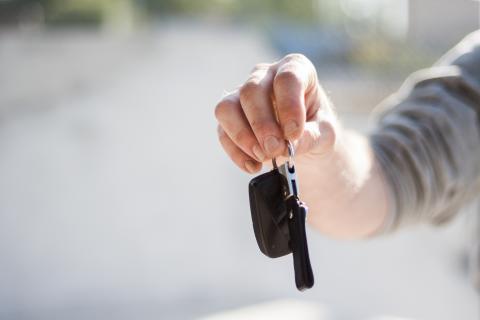Auto industry Gives Back Amid Crisis

In a short span of time the coronavirus has taken a heavy toll on the auto industry, from dealer to consumer. Production came to a screeching halt, sales dropped exponentially, and everyone was left to themselves to think about what was next. Fortunately, all over the world people are finding ways to support each other and provide hands-on help to relieve the effects of this crisis.
Many auto plants, such as GM, are putting their efforts toward producing ventilators for infected coronavirus patients. The DHHS contracted a large sum of money with them to produce a generous amount of medical equipment. Ford is making Covid-19 tests on its assembly lines. It’s also using airbag material to make face masks, respirators, and gowns.
Empty production plants and abandoned showrooms are using their empty spaces to be resourceful. A Chrysler-Jeep dealership in Detroit has transitioned itself into a site for blood donations to ease some of the traffic at health care facilities.
A Ford dealership owner in Hawaii reached out to his local hospital to see what it needed. He quickly wrote a check to purchase ventilators for that facility. Even if something huge like that isn’t within your budget, there are plenty of other ways to give back.
Many dealerships that are open for “essential” service have thought of unique ways to help out in their communities. Most dealerships are disinfecting interiors before service to protect employees and after service to protect customers.
People are afraid to go out, so some service departments are offering delivery services. They pick up the vehicle from customers’ homes, perform the service, and return a sanitized vehicle. Customers pay by card over the phone. Offer to leave the keys under the front mat to decrease contact. Implementing something like this will make your customers feel appreciated and keep your service department profitable. If people won’t come to you, go to them.
Brands like Volkswagen are using what they’ve got for the greater good by offering up its loaner car inventory to provide delivery services for essential supplies, such as food to vulnerable citizens who are unable to go out and masks to medical facilities.
Dealers are giving shocking discounts for service and purchasing vehicles to both encourage business and assist consumers who may be experiencing a reduction in income. For example, AutoNation is offering a 25 percent discount on service. This is a great relief to families who their cars repaired but are struggling financially. Even though dealers aren’t making the same revenue as before, by creating these incentives and discounts for consumers, they are still bringing in some money, which is better than no money.
With so many hands working to help, many can profit despite the crisis. Companies who offer these services are only adding to their reputation for being responsive and supportive, gaining long-term, loyal customers. From medical equipment manufacturing to sanitary service appointments and turning showrooms into crisis relief opportunities, many staff members are even able to keep some of their hours, avoiding layoffs. When it is all said and done, dealerships will be remembered for their gracious efforts to help their communities and keep afloat during this strange and stressful time.






